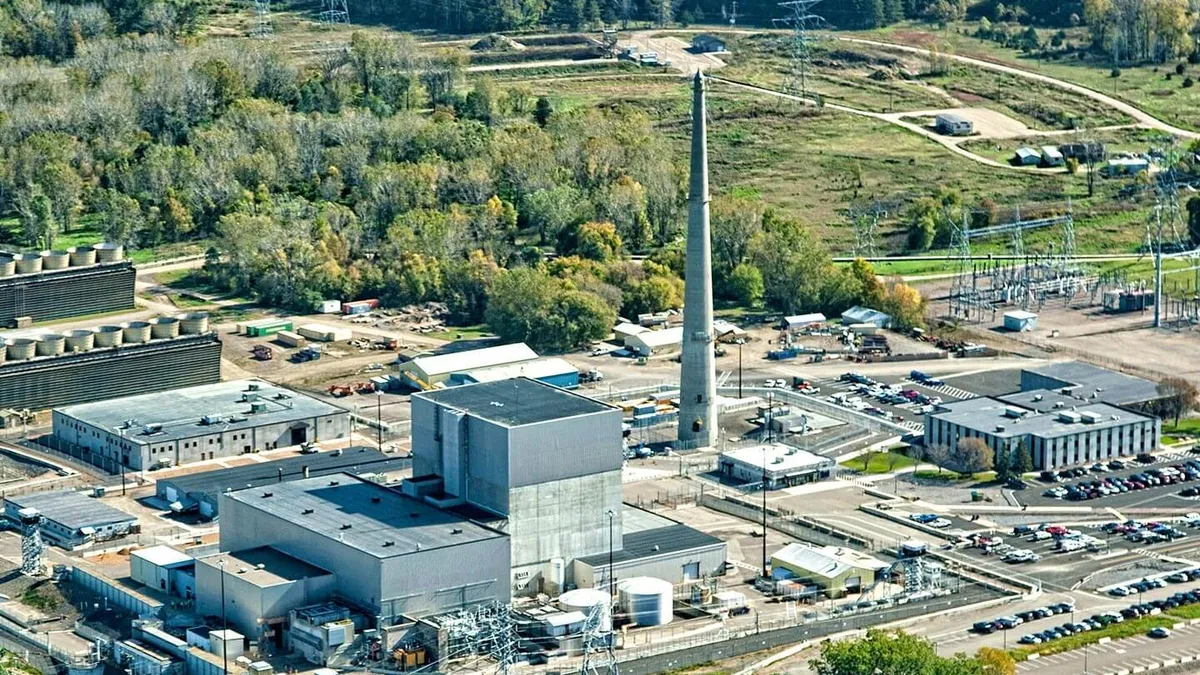Xcel Energy on Friday temporarily shut a Minnesota power plant to stanch a second radioactive water leak, four months after an initial repair failed to fix the problem.
Chris Clark, president of Xcel Energy–Minnesota, North Dakota and South Dakota, said the leak at the 671-MW plant in Monticello, about 40 miles northwest of Minneapolis-St. Paul, poses no risk to the public or the environment. But the “best course of action is to power down the plant and perform the permanent repairs immediately,” he said.
Clark said Xcel identified the source of a leak of 400,000 gallons of water with tritium late last year and found a short-term solution to capture the water from a leaking pipe and reroute it back into the plant for re-use.
Tritium is a naturally occurring radioactive form of hydrogen found in small or trace amounts in groundwater and is a byproduct of the production of electricity by nuclear power plants. It emits a weak form of radiation that does not travel very far in air and cannot penetrate the skin.
The initial repair in November was designed to prevent more tritium from reaching the groundwater until the company could install a replacement pipe during a scheduled refueling outage in mid-April, Xcel said.
Monitoring equipment last Wednesday indicated that hundreds of gallons of water from the original leak was reaching the groundwater. For two days, the temporary solution failed to capture 100% of the leaking water, Xcel said.
The new leak will not materially increase the amount of tritium Xcel is working to recover, it said.
Xcel said it notified the U.S. Nuclear Regulatory Commission and state officials Nov. 22 of the initial water leak. It said that to date it has recovered about 25% of the tritium-laced water and will continue recovery work.
The Minnesota Pollution Control Agency said the leak was from a water pipe between two buildings. It urged the NRC to share public communications about the leak and mitigation work after fielding questions from the public and media about why it took four months for the public to be informed.
State and federal regulators said they waited for more information before publicly discussing details about the leak.















